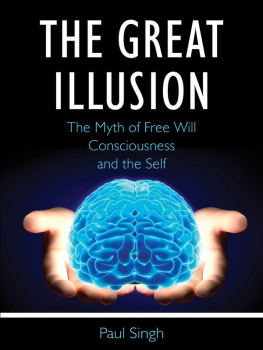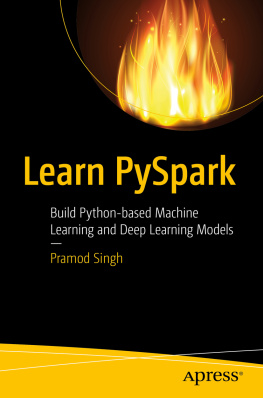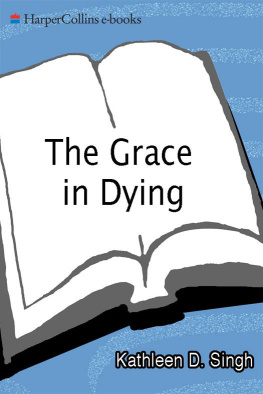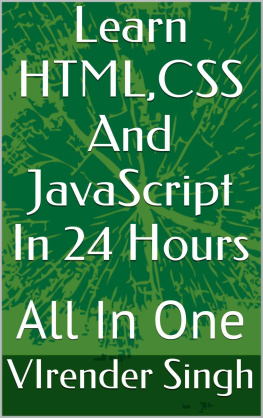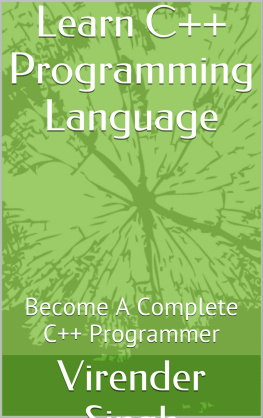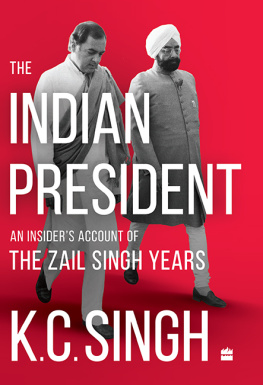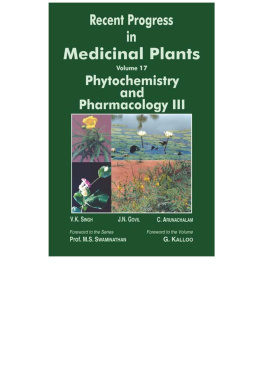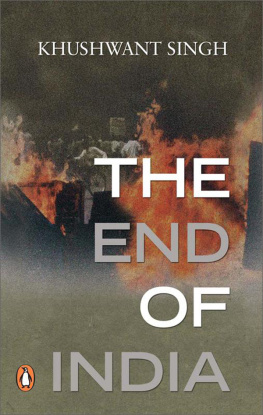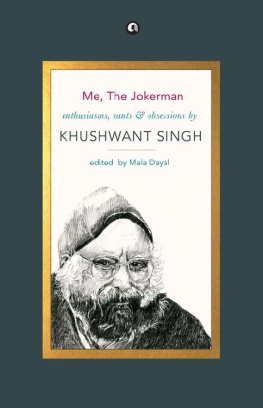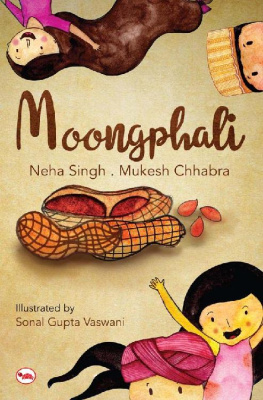Singh - Great Illusion
Here you can read online Singh - Great Illusion full text of the book (entire story) in english for free. Download pdf and epub, get meaning, cover and reviews about this ebook. year: 2016, publisher: Independent Publishers Group, genre: Religion. Description of the work, (preface) as well as reviews are available. Best literature library LitArk.com created for fans of good reading and offers a wide selection of genres:
Romance novel
Science fiction
Adventure
Detective
Science
History
Home and family
Prose
Art
Politics
Computer
Non-fiction
Religion
Business
Children
Humor
Choose a favorite category and find really read worthwhile books. Enjoy immersion in the world of imagination, feel the emotions of the characters or learn something new for yourself, make an fascinating discovery.
Great Illusion: summary, description and annotation
We offer to read an annotation, description, summary or preface (depends on what the author of the book "Great Illusion" wrote himself). If you haven't found the necessary information about the book — write in the comments, we will try to find it.
Singh: author's other books
Who wrote Great Illusion? Find out the surname, the name of the author of the book and a list of all author's works by series.
Great Illusion — read online for free the complete book (whole text) full work
Below is the text of the book, divided by pages. System saving the place of the last page read, allows you to conveniently read the book "Great Illusion" online for free, without having to search again every time where you left off. Put a bookmark, and you can go to the page where you finished reading at any time.
Font size:
Interval:
Bookmark:
P aul Singh is a biochemist, mathematician, surgeon-physician and a urogynecologist. He is also a scholar of eastern and western intellectual traditions. He is a professor of obstetrics and gynecology in the College of Medicine at the University of Science, Arts and Technology in Montserrat, British West Indies. He is the author of Discovering Our World: Humanitys Epic Journey from Myth to Knowledge.
Singh has held memberships and fellowships of organizations such as the American Medical Association, The American College of Surgeons, The American Society of Lapro-endoscopic surgeons, California Society of Plastic Surgeons and the American Association for the Advancement of Science. He is also a member of the American Physical Society and the American Chemical Society and their technical divisions of Chemical Physics, Quantum Chemistry and Medicinal Chemistry. He also is an active member of Doctors without Borders and Chemists without Borders.
Paul Singh is the founder and president of Singh Global Initiatives, a philanthropic organization and a 503 (1) (c) public charity. Humanitarian projects around the world are operated by volunteers under the umbrella of Singh Global Initiatives, making health and science education accessible to all. Among these projects is a Pediatric Sleep Disorders Foundation. The foundation provides free medical advice and support to children around the world who suffer from narcolepsy and other incurable sleep related disorders.
Dr. Singh commenced his lifelong pursuit of science education at Manhattan College and the College of Mount Saint Vincent in New York City. Pursuing majors in Chemistry and Biochemistry, he graduated summa cum laude in 1990. Paul Singh went on to pursue a degree in Osteopathic Medicine at the New York Institute of Technology. Subsequently, he earned an M.D. and a PhD.
He studied Obstetrics and Gynecology at Seton Hall University in New Jersey and at Brookdale University Hospital and Medical Center, an affiliate of the State University of New York. In 2000, he traveled to California to finish his post-doctoral studies including Chief residency in Obstetrics and Gynecology at Kern Medical Center, a UCLA residency program. He went on to specialize in Urogynecology and Female Pelvic Reconstructive Surgery. Throughout his early medical career, Paul Singh did research projects and fellowships at Cornell, Yale, and Sloan Kettering Cancer Center.
During his medical career, Singh has received several honors and awards for excellence in science from various institutions, such as the Pew Foundation, College of Mount Saint Vincent in New York City, and the Kern Medical Center in California. He lives in Menlo Park, California, with his wife and three children.
I do not know of a book for a general readership that takes a direct stance on the identity of mind and the brain from a strictly scientific standpoint. Yet I will be the first one to admit that the debates about the nature of free will, consciousness, and the self are far from over. It is not, however, because we dont know the answers, but because we are not at a stage of human evolution and progress yet for people to accept such radical ideas. Such truths are scary in the sense that they undermine our ordinary and commonsensical beliefs about human nature and seem to threaten values that we hold dearlyone of the most important of which is moral responsibility. I believe, however, that the truthfulness of a fact should be judged on its own merit rather than based on its social and emotional implications for the well-being of an individual or society. Truth should be acknowledged first and then solutions sought that will be implemented in light of the good and bad that truth has revealed, not the other way around. Truth is about truth and not about convenience or about making us feel good about ourselves.
The conclusion that mind is identical to the brain is based on extensive brain studies conducted by thousands of neuroscientists over the last few decades, and my own experiments on consciousness in my personal lab agree with the scholarly consensus. The hypothesis that the brain is identical to the mind is what Francis Crick calls an astonishing hypothesis, and it is astonishing. Neither consciousness, free will, nor the self can exist independently of the brain. None of these entities has its own existence without the brain. This view is the overwhelming consensus in the scientific community. Once we understand that certain scientific principles undermine the widely held concept of coherent consciousness, the entire house of cards of free will and the self also collapse. Unfortunately, most people in the general population hold a very different view.
Our understanding and appreciation of what most people refer to as free will, consciousness, and the self is at the same stage of human progress that the theory of evolution was at the turn of the twentieth century when the theory of evolution was still being attacked by many scientists of the day. Yet it won out in the endat least among the scientific community. There are, of course, millions of religious people in the United States who still dont accept Darwins theory of evolution. It was only a matter of time before the new sciences of molecular biology and genetics confirmed Darwins theory of natural selection. And the same goes for the ideas presented in this bookall of which depend on the basic insight that the brain is identical to the mind. Every day that passes brings further scientific confirmation that the brain is identical to the mind and that free will, consciousness, and the self are illusions. As time goes by, the public (or at least most of the public) will come to accept these startling claims. This public acceptance will not, however, come from the new discovery of some new genius like Isaac Newton, but from the accumulated research of thousands of neuroscientists throughout the world.

My life-long research has confirmed what modern science has shownthat free will, consciousness, and the self are illusions. I realize that science cannot yet answer all our questions, but science is the only reliable way to know what we know. All scientists know that scientific knowledge is provisional. But they also know that the methods we use to prove or disprove theories are the only dependable methods of understanding our universe. All other methodologies of learning, while appropriate to employ in situations when science cannot guide us, are inherently flawed. Reasoning aloneeven the reasoning of great intellectsis not enough. It must be combined with the scientific method if it is to yield genuine knowledge about the universe.
What persuades most people has little to do with the logical and scientific support for a claim. Most people, including philosophers and the so-called skeptics themselves, become persuaded not by scientific evidence but by emotional and non-evidential aspects of arguments. Before modern science turned its attention to the brain, it was very reasonable to believe in the independent existence of consciousness, free will, and the self. But given what science now tells us about the mind, it is no longer reasonable to believe that consciousness, free will, and the self exist independently of the brain. Such beliefs are superstitionsand superstitions are often accompanied by religious beliefs (in the immortality of the soul, for example). Superstitious and religious beliefs are examples of what Daniel Kahneman calls the framing effect. Framing effects refer to the different ways we have of presenting the same information to evoke different emotions. What is so special about the scientific method is that it is the only reliable way to keep emotions out of the picture and get us as close to the truth as is humanly possible. The framing effect is important in medicine, media, and politicsareas in which people are confronted with controversial issues where the framing of the issue makes all the difference. The goal of science is to be as objective as possible and not to manipulate the data through clever framing devices.
Font size:
Interval:
Bookmark:
Similar books «Great Illusion»
Look at similar books to Great Illusion. We have selected literature similar in name and meaning in the hope of providing readers with more options to find new, interesting, not yet read works.
Discussion, reviews of the book Great Illusion and just readers' own opinions. Leave your comments, write what you think about the work, its meaning or the main characters. Specify what exactly you liked and what you didn't like, and why you think so.

